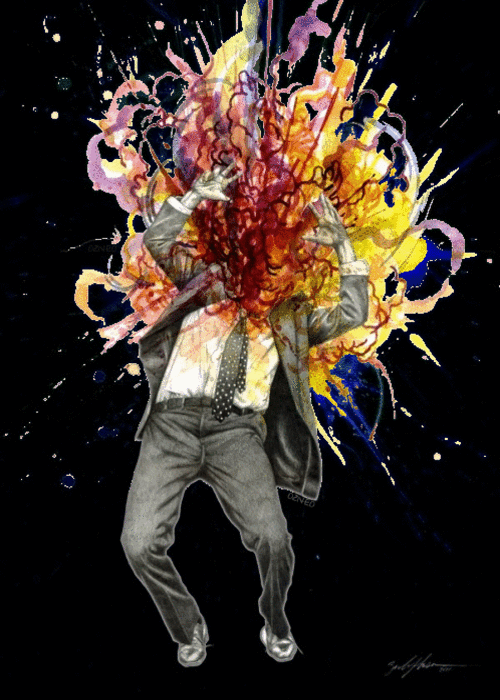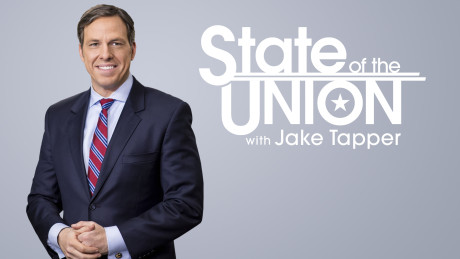Those who came to Tuesday night’s State of the Union hoping that it would be short and strange, in the “weird shit” genre of Donald Trump’s inaugural address, surely left disappointed. The president seemed tame, possibly drugged. Gone was the semi-shouting that characterized his Republican National Convention address and his “carnage” and “tombstones” inaugural speech. In its place was a slow Trump. Even when delivering the line, “we have no choice but to annihilate them,” he sounded like he was coming out of surgery. If nothing else, it made for easier listening, which was welcome in an overlong speech that may, for all we know, still be going on.
People have already derided the speech for being unremarkable in its wording and prose. But whoever wrote it—Stephen Miller is considered to be the likeliest chief author—at least managed to permit the president some Trumpy moments. Lines like “Prices will come down” could get delivered as, “Prices will come down substantially. Watch.” And “We are defending our second amendment” could be Trumpified into “We are totally defending our second amendment.” Best of all, “We have ended the war on clean coal” could be transformed into “We have ended the war on beautiful, clean coal.” Daddy, what did you do in the war against beautiful, clean coal?
In substance, the speech was useful as a barometer of Trump’s interests these days. For part one, this consisted of Trump discussing Trump, Trump’s achievements, and people doing good things because of Trump’s achievements. To be fair, all presidents take a victory-lap approach in discussing the bright spots of the past year, although Trump more so than most. The second half offered a policy focus on one big foreign-policy item, North Korea, although his words were focused mostly on how bad North Korea is rather than what to do about it (luckily, perhaps). The big ticket domestic policy item of the night was, as expected, immigration. The rest consisted of footnotes and addenda.
On immigration, Trump presented himself as the compromise between two distant sides. His own proposal is a good deal more generous toward legalization than what Republican Bob Goodlatte has come up with in the House and less generous than what Dick Durbin came up with in the Senate. But Trump’s game isn’t entirely clear. Does he think Americans will see him as the kind and wise king between two poles? It seems unlikely.
This was tied to the riskiest moment of the address, when Trump told of the murders of two teenagers on Long Island by MS-13 gang members who’d arrived illegally across the U.S. border. The parents were in attendance and Trump asked them to stand. Certainly, the story was horrific, but whether the theater of it worked or looked exploitative is the question.
The footnotes hardly mattered. Trump called for lowering drug prices. Will that happen? Probably not. He called for paid family leave. Will that happen? Well, let’s say that Paul Ryan, who hates the idea, managed to get himself to clap for it, and he wouldn’t have done it if he felt it were real. Mike Pence even offered Ryan a reassuring look and chuckle as if to say, “That’s just Trump being Trump.” Even Ivanka’s clapping looked perfunctory. (Jared Kushner, as always, had dressed for the occasion, with a crisp white shirt and a hipstery tie. You can indict the man, but not his tailoring.) He called for civil servants to be easier to fire. Yeah, everyone’s super-ready to trust him with discretion on that.
Trump certainly got Democrats to be angry. Every few minutes, we were treated to Luis Gutierrez looking angry, Nancy Pelosi looking disgusted, or Chuck Schumer looking strategic. Much to the delight of the MAGA side of Twitter, Democrats didn’t applaud. But this, too, is a decent sign of health in our democracy, for those inclined to rend their clothes. Dictators don’t experience half of a legislative body staying seated with grimaces. (On the other hand, dictators do clap for themselves. So there’s that.)
Did Trump succeed? It depends on what he wanted to do. If he hoped to make Republicans feel less demoralized, then it probably worked fine. If he hoped Americans would side with him on immigration, then maybe he advanced the ball, or maybe not. If he hoped everyone would feel he’d accomplished great things, then it probably had no great effect either way. (As my colleague Peter Hamby has adroitly noted, State of the Union addresses rarely do.) If he hoped Americans would see him as not insane, then it was a stretch—at best he showed he could spend an hour successfully repressing his lunatic alter ego on Twitter. If he hoped they would see him as big-hearted and presidential, that’d be a big no. But he didn’t move backward, which is about as much as Trump, or anyone, can hope for, given the circumstances. He should take that deal.












